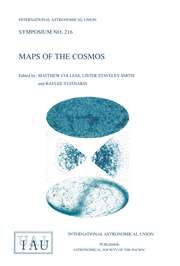Article contents
Fine Structure of the Sun at Centimeter Wavelengths
Published online by Cambridge University Press: 14 August 2015
Abstract
The Hat Creek Observatory's two-element interferometer and the NRAO 3–element interferometer have been used at 1.3, 3.7– and 11.1–cm wavelengths respectively, to study the fine structure of the radio emissive regions on the Sun. Observations of the quiet Sun at 1.3 cm show sudden increases followed by a gradual decrease in the fringe amplitude lasting for typically about 5–8 min. Assuming these events are identical in nature, a plot of peak amplitude against the projected baseline at the time of the event suggests emission from a region of angular size of about 10″. The corresponding brightness temperature is 50000 K. It is possible that these events may be related to the appearance and disappearance of groups of spicules or mottles.
- Type
- Part II: The Quiet Chromosphere: Disk Phenomena
- Information
- Symposium - International Astronomical Union , Volume 56: Chromospheric Fine Structure , 1974 , pp. 65 - 68
- Copyright
- Copyright © Reidel 1974
- 1
- Cited by


